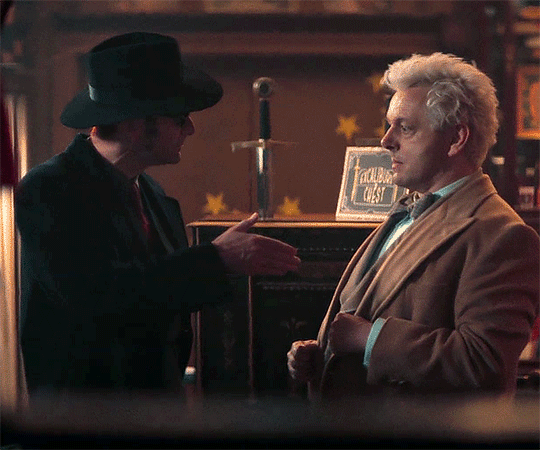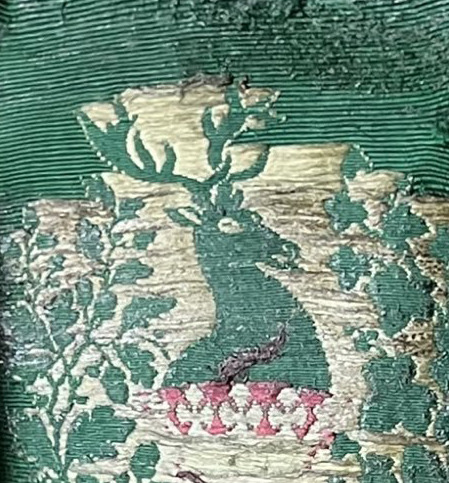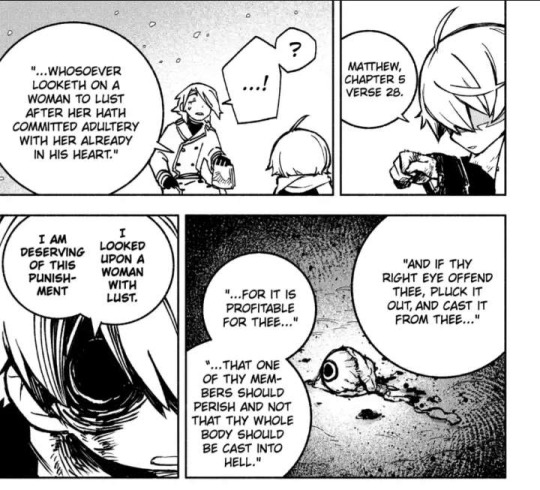#biblical healing journey
Explore tagged Tumblr posts
Text
Way before anxiety or depression were clinical diagnoses, they were mentioned in the Bible. Science is but the expression of mankind's understanding of what God has already created.
Proverbs 12:25 says, "Anxiety in the heart of man causes depression, but a good word makes it glad."
Hear are some bible verses to help fight anxiety:
Isaiah 41:10
Do not fear, for I am with you; do not be dismayed, for I am your God. I will strengthen you, I will help you, yes, I will uphold you with My righteous right hand.
Philippians 4:6-7
Do not be anxious about anything, but in everything by prayer and pleading with thanksgiving let your requests be made known to God. And the peace of God, which surpasses all comprehension, will guard your hearts and minds in Christ Jesus.
1 Peter 5:7
Cast all your anxiety on him because he cares for you.
Psalm 56:3
When I am afraid, I put my trust in you.
Psalm 23:4
Even though I walk through the valley of the shadow of death, I will fear no evil, for you are with me; your rod and your staff comfort me.
2 Timothy 1:7
For God gave us a spirit not of fear but of power and love and self-control.
Joshua 1:9
Have not I commanded you? Be strong and courageous. Do not be afraid or dismayed, for the LORD your God is with you wherever you go.
John 14:27
Peace I leave with you; my peace I give you. I do not give to you as the world gives. Do not let your hearts be troubled and do not be afraid.
Lord I pray that this helps someone through their silent struggles. Thank you Holy Spirit for presenting this to me. May this help those that read it to navigate through the darkness to draw them nearer to you Lord God and further away from the grip of worry, anxiety and depression. I ask Lord give us the strength and discernment to continue to fight against the darkness that attempts to threaten our peace. In Jesus's name, Amen.
#anxiety#anxiety help#heavy feelings#feeling anxious#anxious thoughts#faith#mental health#depression#read these verses to help with anxiety#Jesus heals#Jesus saves#biblical healing journey#biblical healing#Jesus is King#Jesus is Lord#Hallelujah#Thank you Holy Spirit#I pray this helps someone through their silent struggles. Amen
0 notes
Text
plant your own garden and decorate your own soul, instead of waiting on someone to deliver you flowers.
#black girl luxury#biblical femininity#feminism#for you#pink blog#aesthetic#christian that girl#hypergamy#new writer boost#pink pilates princess#healing journey#soulful
8 notes
·
View notes
Text
Victory in Christ: Embrace the Power of Worship
Want to move into a deeper prayer realm. Join us as we explore the power of Praise and a thankful heart. God bless.
Church service 11/18/2024 For this cause I Paul, the prisoner of Jesus Christ for you Gentiles, (Eph 3:1) Welcome to our Sunday service. We are delighted to have you join us. Together, we will delve into the uplifting topic of Praise and Worship. Praise and Worship is not just an act, but a way of life for believers. It’s a powerful expression of our love, adoration, and gratitude towards God.…

View On WordPress
#Believer&039;s journey#Biblical promises#Breaking free from prisons#Divine escape plan#Faith and promises#Financial freedom in Christ#Free in Christ#God&039;s presence#Healing through worship#Overcoming trials#Power of worship#Praise and Worship#Spiritual freedom#spiritual growth#Victory in Christ#Walking in faith
0 notes
Text
Steps to Reconciliation in Addiction Recovery
Reconciliation is essential for recovery and faith, serving as a path to healing and connection. In Christianity, it goes beyond forgiveness; it aims to restore relationships with God and others. For those facing addiction, reconciliation can lead to tran
Reconciliation: A Journey of Faith and Recovery He made Him who knew no sin to be sin on our behalf, so that we might become the righteousness of God in Him~2 Corinthians 5:21, NASB95 ~ Reconciliation plays a deep role in recovery and faith, offering us a path towards healing and understanding. In Christianity, it is not just about forgiveness but mending the soul’s ties with God and others.…
#Bible#bible study on reconciliation#Biblical Teachings#christian faith recovery#christian reconciliation#emotional recovery#faith#faith journey#faith-based recovery steps#faith-driven recovery#Forgiveness and healing#God#god&039;s love and forgiveness#healing through faith#Jesus#journey of faith and healing#journey of healing#overcoming past hurts#Reconciliation#reconciliation and forgiveness#reconciliation biblical foundation#reconciliation in scripture#recovery process#Spiritual Growth#Spiritual Healing
0 notes
Text
youtube
#make it 50 words#FaithInAction#Christian inspiration#Faith-based content#Spiritual growth#Biblical teachings#Inspirational messages#Encouragement#Gospel reflections#Christian life#Devotional insights#Prayer and worship#Christian community#Faith journey#Healing and hope#Bible study#Positive faith#God's love#Testimonies#Scripture study#Christian values#Serenity and faith#Remember#User#ChatGPT#Biblical insights#HealingJourney#DivineRestoration#make it 20 words
1 note
·
View note
Text
About 30 years ago, an American botanist dug into the mud of a dried-up lake in China and found 1,000-year-old lotus seeds. She studied them carefully and put them in a pot on her lab's windowsill. They sprouted a few weeks later. "That took no effort. I thought that if she could do it, so can we," says Dr. Sarah Sallon, a pediatrician at Hadassah Medical Center, where she founded the Natural Medicine Research Center 25 years ago. The lotus that flowered on that windowsill in the United States sent Sallon on a years-long journey of raising date palms based on 2,000-year-old seeds. She even ate the fruit and then carried on with her botanical detective thriller.
At the end of her quest she proposed a solution to intriguing historical questions: What are the biblical plants tsori and afarsimon? What links them? And where did they disappear to?
....The fact that the Commiphora that sprouted [from their 1,000-year-old seed] resembled varieties found in Madagascar, not far from Sheba, adds to the hope that maybe the small plant is the legendary afarsimon that vanished from history in the eighth century. But alas, the plant at Kibbutz Ketura produced no aroma.
"We waited several years hoping that as it grew it might become fragrant. And we also sent specimens to chemists at the University of Western Australia and the University of Strasbourg in France," Sallon says. "What they found were almost no compounds associated with fragrance but many very medicinal ones including those with anti-inflammatory compounds."
Sallon, therefore, has a few key questions about the afarsimon. How is it that a plant that thrived for 1,000 years on large farms at the Dead Sea vanished without a trace? How is it that no archaeological excavation in the region, from Qumran in the north to Masada in the south, has found any afarsimon seeds?
....Cautiously, Sallon proposed a hypothesis for all the mysteries. She believes that the plant she found is a Commiphora that grew naturally at the Dead Sea, and that it may be the healing tsori mentioned in the Bible and known since the time of the Patriarchs.... [and that] ancient farmers used it as the stock for the aromatic Commiphora – the legendary afarsimon. This grafting gave Judean farmers the ability to grow large afarsimon fields and become a perfume powerhouse. This solution solves all the mysteries: Grafted plants often don't bear seeds, so no afarsimon seeds have been found at archaeological digs.
This is so cool. I can't believe people are sprouting seeds from archaeological digs and bringing extinct species back to life to learn about!
And it's so appropriate that it's two of the oldest cultures in the world that are doing this. I can't wait to see what else people will sprout!
#jumblr#wall of words#Jewish joy#food tw#eating history#i love science#Jewish History#Chinese history
145 notes
·
View notes
Note
Hi! I'm looking for fics set in ancient history, preferably including extensive descriptions of the ancient cultures. I don't mind NSFW, but mainly I'm looking for a good story and interesting plot. The longer the fic, the better!
If it helps, I really enjoyed "Do You Know What Eternity Is?" by Elderly_Worm and the "Mistakes Were Made" series by eag
Thanks! 💕
Hello. You can check our #through the ages tag for fics. Here are some more to add that feature different cultures...
Camel-travel star-gazing by Sad_Wet_Bretzel (G)
Crowley had tilted his head back. His eyes were still covered by dark lenses and Aziraphale wished he would just take them off. It was night, and the nearest human was twenty metres away, their back turned to them. “See that one?” the demon said suddenly, pointing eastward. “S’ one of my favourites.” or Aziraphale and Crowley are assigned to the same caravan, travelling from the Ghana Empire to the Mediterranean Sea across the Saharan plains. The perfect cover to innocently spend time together.
some chocolate to sweeten the deal by Enelica, sevdrag (G)
“Heathens.” Crowley snorts. “Did you know they’ve already discovered four of the planets? Lot of work went into those, let me tell you, and these clever bastards have spotted four of them already. Britannia should weep.” Aziraphale’s smile softens in pleasure. The angel’s too soft over humanity, and unfortunately, it’s one of the things Crowley likes best about him. “Did you know they’re only eight hundred and ninety years off calculating when the earth began?” The angel glances away, and Crowley has to cover a sharp breath at Aziraphale’s profile, pale and happy. “That’s the closest anyone’s gotten, I believe.” (Written for the Days Of Their Lives zine with incredible art by Enelica!)
we'll get there fast, and then we'll take it slow by in_deepest_blue (T)
"Hurry over like a horse, but take your time like an ox laden with treasures." One summer in late 19th-century Japan, Aziraphale learns about a fascinating tradition during Obon, the festival to honor the deceased, which reminds him of his hopes for a future with Crowley. A look into four different stages in Aziraphale and Crowley's relationship, all set in Japan during different seasons and time periods.
A Juhannus Night's Dream by kittygirl2210 (G)
Aziraphale is sent up to Finland to bless a Midsummer festival, Crowley goes with her on her own "assignment". The pair thus get roped into helping with the celebrations. Aziraphale and Crowley are fem presenting in this, and it takes place between Edinburgh and St. James' Park! (Note: contains some Finnish Fem!Aziracrow art!)
The snake of healing by Sad_Wet_Bretzel (G)
Aziraphale stared at Crowley, who stared back. The angel looked the same, if a little travel worn. His river coloured eyes crinkled slightly at the sides as he took in his friend’s appearance. Crowley tightened her trembling fists, nails digging into the skin. or After a particularly nasty punishment from Hell, Crowley retreats in the Chicama Valley and becomes an artisan. Aziraphale comes to find her.
Mistakes Were Made: The Book of Crowley by eag (M)
Based on the biblical Book of Tobit from the Apocrypha. Ephesus, 400 B.C. Commanded away from Aziraphale's side by an infernal master, Crowley is forced to use his time-stopping powers for Asmodeus' dirty work while Aziraphale is left wondering why Crowley has disappeared. As Crowley sinks ever deeper into despair, Aziraphale is sent on a journey accompanying a human from Nineveh to Ecbatana. Of course, mistakes were made...
- Mod D
65 notes
·
View notes
Text



Archangel Raphael Talon Abraxas
St. Raphael is one of the seven Archangels who stand before the throne of the Lord, and one of the only three mentioned by name in the Bible. He appears, by name, only in the Book of Tobit. Raphael's name means "God heals." This identity came about because of the biblical story that claims he "healed" the earth when it was defiled by the sins of the fallen angels in the apocryphal book of Enoch.
Disguised as a human in the Book of Tobit, Raphael refers to himself as "Azarias the son of the great Ananias" and travels alongside Tobit's son, Tobiah. Once Raphael returns from his journey with Tobiah, he declares to Tobit that he was sent by the Lord to heal his blindness and deliver Sarah, Tobiah's future wife, from the demon Asmodeus. It is then that his true healing powers are revealed and he makes himself known as "the angel Raphael, one of the seven, who stand before the Lord" Tobit 12:15.
The demon Asmodeus killed every man Sarah married on the night of the wedding, before the marriage could be consummated. Raphael guided Tobiah and taught him how to safely enter the marriage with Sarah.
Raphael is credited with driving the evil spirit from Sarah and restoring Tobit's vision, allowing him to see the light of Heaven and for receiving all good things through his intercession.
Although only the archangels Gabriel and Michael are mentioned by name in the New Testament, the Gospel of John speaks of the pool at Bethesda, where many ill people rested, awaiting the moving of the water. "An angel of the Lord descended at certain times into the pond; and the water was moved. And he that went down first into the pond after the motion of the water was made whole of whatsoever infirmity he lay under" John 5:1-4. Because of the healing powers often linked to Raphael, the angel spoken of is generally associated with St. Raphael, the Archangel.
St. Raphael is the patron saint of travelers, the blind, bodily ills, happy meetings, nurses, physicians and medical workers. He is often pictured holding a staff and either holding or standing on a fish. His feast day is celebrated on September 29, along with St. Michael and St. Gabriel.
35 notes
·
View notes
Text
The QSMP Dead 3 (Phil, BBH, Missa) & Their Differences
(BUCKLE UP ITS A HEADCANON POST WHERE I TRY TO SORT OUT THE REALLY CONFUSING DEATH LORE ON THE QSMP)
(I WATCH PHIL BUT NOT RELIGIOUSLY PLEASE ADD OR CORRECT INFO, CROWS)
(I’VE WATCHED SOME OF MISSA’S QSMP STREAMS BUT NOT ALL OF THEM, SO SAME THING APPLIES)
HERE WE GO
Philza:
- The Angel of Death (Not to be confused with Bad, who is a fallen Angel)
- Married to the Goddess of Death (Death in this case is referring to the Concept/Domain)
- NOT responsible for ferrying souls like a Reaper. His title is designated due to both his immortal status and deadly reputation, as well as his connection to the Goddess - similarly to how a queen might designate a knight.
- Immortal: He has higher survivability than Bad and seemingly puts a little more effort into his Days-Spent-Alive-In-A-Row streak (Past lives? Potentially a multi-dimensional being)
- Can commune well with most (if not all) gods and form semi-normal relationships with them as an equal.
- Cannot commune well with (or perhaps avoids talking to) the general dead. Despite not being able to see/hear dead people himself, he can pass the trait to his offspring as seen with Lullah. (It’s possible her power stems from both Phil and Bad. That’s what you call a whombo-combo. Sorry, Lullah.)
- Has no real connection to Bad as their duties do not usually overlap, but they are aware of each other. (AKA they are “coworkers” but Phil has no inherent authority over Bad. Their little office cubicles are on different floors.)
BadBoyHalo:
- The Grim Reaper (not to be confused with a regular Reaper - there is only one Grim Reaper working at a time) and a Fallen Angel, specifically (Thanatos?) one of the four biblical horsemen of the apocalypse/one of four angels trapped under the biblical Euphrates river.
- He is the “Death” horseman and can be referred to as “Death” but is not a death god. Rather his job led him to be associated with Death (the process/journey)
- Immortal: He can’t necessarily survive better but he will revive no matter what and cannot die the same way twice. (Past lives? Potentially a multi-dimensional being.) Despite not being as hardy as Phil, he may be older (although it’s difficult to quantify)
- Cannot commune well with gods and is seemingly not viewed as equal (although he has connections with the goddess Hecate - also a death goddess but not the death goddess. Hecate is more-so a goddess of crossroads - the transition between life and death. She may be his employer.)
- Can commune EXTREMELY well with the general dead (can potentially recognize and cultivate this ability in others - as seen with Dapper and Lullah)
- See the end for Grim Reaper/Reaper duties and differences
Missa:
- I don’t have much to go off here I’m gonna be honest. Him being a reaper isn’t even canon.
- That being said
- Missa is a Reaper, a normal one, of the Undead variety.
- NOT Immortal (at least not like Bad and Phil): As an Undead creature he cannot die of old age/sickness but can otherwise be slain so he has to be a bit more careful. He is not as unbothered by death/killing as Philza and BBH. He is also not nearly as old - the fact that they are so chill about each other is sometimes to his detriment.
- He cannot commune with any gods unless granted the ability by Phil or another power. He can communicate with the dead minimally but it’s kind of like if you tried to talk to a parrot (again, unless it’s being ‘translated’ by Bad or another power).
- Missa has necromantic magic, not enough inherent power to revive himself but enough to heal his own wounds and revive smaller things. (I know Bad ‘revived’ Missa’s mini-me for him but for the sake of Lore I’m gonna say Missa did that with his magic and Bad just kinda helped him focus it.)
- Missa and Bad, while both being Reapers, do not quite function with the same purpose and therefore Bad has no inherent authority over Missa. They are like two cats - even if one is bigger than the other they are still both cats. Also death doesn’t care about hierarchy.
- Missa actually does his job which is why he is frequently gone. Bad and Phil, on the other hand, are straight-up chilling. (Phil’s job doesn’t require him to go out collecting souls and Bad kinda doesn’t care. What are they gonna do, fire him?)
GRIM REAPER VS. REAPER DIFFERENCES
- Reapers are collectors and guides of souls in the afterlife - helping them make the journey from life to death. They cannot commune with souls they are not explicitly collecting, and do not choose who they do and don’t collect.
- Undead Reapers were mortals who were chosen in life and trained upon death to be Reapers. They are returned to life specifically for this purpose, and once dead cannot revive themselves - they can only come back if they are once again chosen and pulled back by an outside force.
- The Grim Reaper is also a collector and guide, however they can also foresee a living soul’s journey (as seen with Bad’s conversation with Pac) as well as alter it (Bad generally does this by Killing People). The Grim Reaper can commune with all souls regardless of circumstances and can also play favorites as long as balance is kept. Similarly, while the Grim Reaper cannot return souls that have already passed the crossroads, they can reach out to any soul they please, to talk to them or anchor them to a given realm.
- All Reapers frown upon upsetting the balance of death and life - however ‘balance’ can be left up to their discretion, for the most part. So sometimes emotions can cloud judgement.
- All Reapers are recruited as it is a job title and not a species. However, among undead reapers skulls are common adornments (as seen with Missa.) The Grim Reaper has a straight-up hood-and-scythe dress code. The employer of all Reapers is generally unknown although Hecates is a plausible suspect. The Grim Reaper still must train under the former Grim Reaper, just as a Reaper must train under another Reaper. Bad and Missa can train new Reapers, but Missa cannot choose who becomes a reaper, and Bad cannot choose who will be the next Grim. Bad can also help others if they are born with an affinity for the dead as he has plenty of souls on hand to practice with. Missa can do this as well, but he cannot summon souls to practice with, he can only use what he has available.
#QSMP#qsmp analysis#q!philza#q!badboyhalo#q!bbh#q!missa#qsmp character analysis#qsmp headcanons#coworkerduo#reaperduo#deathduo#I’ll add as many tags as I want!!!!!#i bet you motherfuckers thought I was done with the qsmp analysis posts#I LIVED BITCH#the justification for why q!Bad seems to terrify q!Missa is because q!Bad is scary not because he’s q!Missa’s boss#additionally even if q!Phil was the boss of q!Bad I would be doing a disservice to q!Bad’s character if I tried to pretend he would care#this is kinda also why q!Phil lightly scolded q!Bad for bullying q!Missa and then did nothing else#he knows q!Bad is playing in his own strange way and also he can’t kill him so like what do you want from him#q!Missa doesn’t know this though that poor poor man
49 notes
·
View notes
Text
Once and Future Royalty
Just, stay with me on this one. I know its going to look crazy at the start, but trust me, I know where I'm going.

It all started with the 537AD scene in Wessex in the opening montage of "Hard Times," S1E3. Yeah, the one where Aziraphale is supposed to be a knight of the Round Table and Crowley is role-playing the Black Knight, and they are both so super-squeaky shiny clean - not a speck of dirt or mud on them. wtf! It looks out of place, unrealistic, and was bugging the crap out of me, like a stone in your shoe. It just didn't fit. I mean, why put a myth, a legend, into that sequence? Oh, OK, yeah, the preceding stories from the Bible, like the Garden of Eden and the Flood, aren't "myths" as well, you say? Hmm. In the context of the Good Omens AU, being a biblical based story, they belong there far more than the legend of King Arthur.
King Arthur, who supposedly united Britain under his rule during the late 5th century and early 6th century, was shown to have the divine right to rule by wielding the mighty sword Excalibur. Some stories tell of Arthur pulling Excalibur from a stone. Some tell of him receiving Excalibur from the Lady of the Lake. Either way, it was bestowed upon him by divine grace. Despite his triumph in battle, he left no heirs, as his queen, the fair Guinevere, was barren. She had a long-running love affair with the greatest knight of the court, Sir Lancelot, but despite this being an open secret in court Arthur would not put her aside. The knights of the Round Table in the court of Camelot were near-paragons of Christian virtue, and there are many tales of their search for the Holy Grail, the cup from the Last Supper of Jesus Christ.
In the end, mortally wounded in battle, Arthur was taken away for healing, and never seen again. It was said he would return when Britain was at it most direst hour to save the day once more. A "messianic" return.
The Once and Future King.
Now, I'm no Arthurian novice; I drank up all of T. H. White as a teenager, read the Dark is Rising multiple times, Marion Zimmer Bradley's interpretation and what ever else I could lay my hands on for a good couple of decades. And there is LOTS of King Arthur stuff around. You are not left wanting for anything new to read or consume. And I'll bet there are a fair few of you also out there who know a quite bit about the legend as well. Oh, and I can't tell you how many times I have watched Monty Python and the Holy Grail. I still walk around quoting it day-to-day, like the good little Gen-Xer I am, having grown up on that stuff. So I really should have listened to my intuition when bits of Monty Python kept popping up in my brain in response to other parts of GO I was thinking about. (Staaay, I said, stay with me here....)

I kept chewing away furiously on the Wessex problem, growling in feral frustration at it, but also kept reading and sorting out some other ideas and metas at the same time. Eventually I found the key in a tiny little post, about a small detail in the 1941 Blitz episode S2E4, of all places. I wanted to slap myself with how much was staring me in the face so obviously once the door opened. And the damn beauty of it is, that I already written about some it, out of context, without knowing the why.
OK. Where to start this journey...hmmm, back to Monty Python, because, guess what - the Wessex scene is actually riffing off one the more famous skits out the the Holy Grail. The scene is a masterpiece of political satire, from start to finish, but the relevant part here is this sequence:

In case you missed the salient points: Arthur claims he is king by divine providence, because he was given Excalibur by the Lady of the Lake. Dennis the peasant protests this waterlogged method of determination, mentioning ponds, watery tarts and a moistened... well, I hope you get the idea about where this is going.
Meanwhile, in 537AD, Wessex, as the mist swirls around them:

"It is a bit damp," complains a shiny silver Aziraphale.
Yes, Excalibur would be a bit damp after it emerged from the Lake. (vidavalor! Get your mind out of the gutter! I'm trying to have a serious discussion here! Please! And I wasn't even going to go anywhere near what the sword in the stone is really meant to be referring to...it's not even relevant to the discussion at hand, I swear! Well, there is going to be sexual relations mentioned but - oh, never mind...)

Right. Where were we. Lets leave those super-clean elite pretendy knights to swim off through the swirling mist back to their dry homes to write and file reports to head office, along with Patsy and the hired Igors, and Dennis can keep playing in his lovely muddy filth after he finishes protesting being repressed by the divinely-deluded Arthur. I've got a bit more to say about what Aziraphale and Crowley might represent here later but you need some more context first, so lets move on. I just needed to show you the first bit so you can see the Arthurian theme stretches across both S1 and S2, and will likely appear in S3 as well. More about that towards the end.
Ah, before I forget...another ref from the Holy Grail we need to cover:

This GIF, unfortunately, doesn't have the full exchange between the peasants, which is this:
P1: "Who's that then?" P2: "I don't know. Must be a king." P1: "How can you tell?" P2: "Because he doesn't have any shit on him."
Ah. Er. OH!
Have you made the connection?
Who have I been emphasizing as being unusually clean in their Arthurian setting? That's right, Aziraphale and Crowley.
What's this implying? That they are royalty. Celestial royalty. Maybe not kings, but how about princes? You know how we've been discussing whether Crowley was a once at least an Archangel, and there is even a hint that he was a fallen prince of Heaven given during the replay of Gabriel's trial? (Not the prince, but a prince - a seraphim) And that Aziraphale may have once been Raphael, and may be again in the future? Once and future royalty. To me it adds weight to the past discussion, and helps to explain the assumed authority expressed in these two scenes here: On the left, Aziraphale takes control inside the book shop as the angels and demons argue who is going to punish Gabriel and Beelzebub (finally found it after several months!) and on the right, Crowley is shouting at the assembling demons in the street that they are "out of order."


Onward, Patsy. (I hope you're still with me.)
1941, the Blitz part 2, minisode.
We've found Excalibur! On to Camelot!












[Edit note: I've added a few GIFs and screen shots into the sequence of parallels above because I was thinking over a few things since I posted and felt this actually sat better. To try and explain, as they don't exactly match as I would like, in the Holy Grail movie, King Arthur and the knights he has gathered rock up at the foot of Camelot and gaze up in awe at it. "Camelot!" Arthur declares to the party. "Camelot!" Galahad echoes in excitement. And a third "Camelot!" comes from Lancelot. What do we get in GO? Aziraphale leaps out of the Bentley (Crowley's black horse) and declares "The theater! Sophocles! Shakespeare!" I swear, if you put the two side by side, they would match. It's not just a reminder of how much time Aziraphale has seen pass by, or that we are seeing a tragedy play out. But damn it, I could so just see Aziraphale attending a Sophocles performance in Athens back in the day...]
Camelot was King Arthur's castle and home of his court. In S2 of GO the Windmill Theater is established as our court of Camelot where our 1941 Blitz-era Arthurian drama is to play out, involving Furfur and the zombies.

Yes, poor old Furfur. Two's company, three's a crowd, as they say. Now we know we're in Camelot, we need to be reminded of the central tragedy of the Arthurian story, that ultimately led to the golden kingdom's fall. Lady Guinevere, Arthur's queen, famously loved Sir Lancelot, and the two were passionate lovers. It was essentially a love-triangle at the top, with Arthur being jilted, but he wouldn't/couldn't discard his queen. Where do we see this playing out in 1941?
Furfur, pleased with himself for catching an angel and a demon in the act of consorting together (with the help of the zombies,) barges into the backstage dressing room, and confronts the lovers with their crime. But who is playing who in the Arthurian love triangle? I would say Furfur is clearly caught in the role of Arthur here. Consider the following exchange:
FURFUR: Hmm, well, well, well… What have we here? AZIRAPHALE: Sorry, have we met? FURFUR: Oh, no, you never had the pleasure, but… we have, haven't we? CROWLEY: Have we? FURFUR: What do you mean "have we?" You know we have. We were in the same legion. Just before the Fall. Doing dubious battle on the plains of Heaven. Remember? CROWLEY: I remember going into battle, I don't remember being there with you. Sorry. FURFUR: I was right next to you. We did loads together. You use to jump on me back, little monkey in the waistcoat. Anyway, whether you do or whether you don't, it doesn't matter. I'm here to inform you, as a representative of the Higher Powers of Hell, that you, Crowley, are in breach of the Infernal Code. Consulting and collaborating with an angel, Fell the Marvelous, aka… [opens book] Azirapalala. Azirapapap. Aziphapalala. AZIRAPHALE: [annoyed] Aziraphale


Furfur claims a past intimate relationship with Crowley, which Crowley spurns offhandedly. Crowley is playing Guinevere here, jilting Furfur/Arthur, which leaves the demon-smiting Aziraphale standing in for the handsome hero Lancelot (with his French connections, no less), and doesn't he make us weak at the knees when he drops his voice an octave in dominating disgust. (Is it suddenly getting hot in here...? Phew!)
Interestingly, looking back in S1 at 537AD Wessex, though, I would say that Crowley was Lancelot as the Black Knight, a role that Lancelot sometimes played in the legends, and Aziraphale would then be the fair maiden Guinevere. It certainly plays into Crowley's long term role of playing the knight who comes to the rescue of Aziraphale's princess in distress. Excalibur was no where in sight, perhaps still beneath the waters of the lake. Nor Arthur. Perhaps it was still too early in the story then...
I had originally suggested in my very first post that Furfur was given a stag as his demon avatar because he was wearing horns for being cuckolded by Crowley. But I wasn't quite thinking about it in context with the Arthurian legend! The stag is also often associated with royalty, plus while wandering around the medieval bestiary website that someone linked to, it interestingly notes that the enemy of the snake is the stag and the stork (Shax's avatar.) Ah ha!

So how can we extrapolate this knowledge into a possible appearance of the Arthurian theme in S3?
Will we see the love triangle of Arthur/Guinevere/Lancelot come back into play and cause more chaos? I'm wondering if it might have something to do with the Fall.
Or will our lovers bring down a divinely-appointed ruler via their committed behind-the-back defiance of expected propriety?
Will Excalibur appear from beneath the waters, perhaps in another form, to declare a new king?
Could it even be a combination Jesus/Arthur, King of the World, returned? And they turn out to be a very naughty boy, disappearing into the night clubs of Times Square, New York, and that's how they lose him? (Social media viral sensation, anyone?)
I wouldn't be half-surprised if Greasy Johnson's name turns out to be Arthur, actually.
And no, I haven't forgotten that Adam's dad was named Arthur as well.
Bring on S3!
**Bonus**
If you've made it this far and you're thinking:

Let me leave you with this last connection.
In the back stage change room, remember Furfur delivers these lines:
FURFUR: What do you mean "have we?" You know we have. We were in the same legion. Just before the Fall. Doing dubious battle on the plains of Heaven. Remember?
On the first level, he is referring the Great War in the Good Omens AU.
On the second level, Furfur is paraphrasing Milton's Paradise Lost.
On a third level, I can (and will in a future meta) connect this back to the training initiative paintball fight at Tadfield Manor in S1.
And even deeper on a fourth level, if you do know the Holy Grail movie well, you'll remember there is an odd little subplot in it, that infers that the whole King Arthur and his knights thing is merely a full-on violent cosplay that is murderously rampaging across the countryside in the present day with the police in hot pursuit. It's a strange juxtaposition between reality and dream, and you aren't quite sure what it is real or not. The ending is bizarrely and abruptly surreal as the two story lines collide in the heat of battle, as the police turn up and arrest the combatants. A bit like this:

#good omens#good omens 2#good omens meta#good omens analysis#aziraphale#crowley#king arthur#king of the who?#the return of king arthur#excalibur#the lady of the lake#watery tarts#monty python#monty python and the holy grail#run away#camelot#arthurian legend#ladies of camelot#guinevere#lancelot#the once and future king#once and future royalty#good omens 1941#furfur#shax#dubious battle on the plains of heaven#tadfield manor
182 notes
·
View notes
Text



Every year before the month of Elul, I get this call to visit the Holy City of Safed. This ancient city makes me feel like a tourist and I fall deeply in love with it over and over again. Experience wondrous expeditions of paved stone alleys inlaid with beautiful art galleries and breathtaking ancient synagogues. Discover the beauty and allure of Safed to soothe your soul with holiness and radiate glowing healing energy into the world. Nurture your longing for the sacred in 5784 while wandering the old city shimmers of Light blue called תכלת. In Hebrew the word is linked to תכלית which means purpose. In the 16th century, Kabbalah mysticism was revived in Israel at the Holy City of Safed where it grew into a significant esoteric Jewish stream of profound impact, shining its sacred glow of love across the world. The Kabbalah is the most eminently sacred realm of Judaism, denoted by oneness and the longing to unite with the Holy of Holies. The Holy City of Safed Immerses your sacred soul with the holy essences of Kabbalah illuminated by the holy glow of the Zohar and the Ten Sefirot divine powers of the source. The "Ten Sefirot" known as the ten attributes of God are arranged in a Tree of Life formation, with elevated branches reaching into Heaven and roots delving deep into Earth, symbolizing the nature of God, the universe, and the human soul. Enhance the flow of holiness and oneness that enlightens a Heaven and Earth vertical alignment with Safed's ancient Synagogues and Jewish Art that glimmer holiness coded with mesmerizing Torah Biblical verses and decorated with holistic elements of Judaic holy symbols and Aramaic holy meanings. An experience designed for a loving soulful journey blessed by God's providence. Join the "Sail Away with Me" LinkedIn Group: https://www.linkedin.com/groups/9810358
#faith#sacred#holiness#holyland#jewishart#judaism#synagogue#synagogues#israel#god bless#torah#judaic#kabbalah#kaballah#kabala#ten sefirot#tree of life#holycity#holy city#galilee#mystic#esoteric#spirituality#esotericism
14 notes
·
View notes
Note
Hi! Glad you're back! Can I send you a controversial opinion (again, maybe nobody noticed but it definitely feels like I did it before) purely for the reason that it makes for interesting discussion and you totally are a worthy sparring partner...?
So you just reblogged that one post where it said that 'neurodivergent people often thrive in cultures that still have an appreciation for spirituality' and I immediately went like "wow you're so close bestie it's almost like neurodivergency and mental illness are rooted in demonic oppression and every non-Western society knows that as a matter of fact and lives with it." Sorry, sorry, hear me out-
ON ONE HAND, I 100% believe this. I've come into contact with extremely charismatic Christians who are writing books and doing teachings about this, and they are seeing results as they are breaking generational curses and casting out evil spirits. These people are in my immediate vicinity, so I know some who give testimonies of being healed of arthritis, drugs, and generally feeling way more free.
ON THE OTHER HAND, this knowledge is neither creepy to me nor something to specifically seek out, because to me it is a) neutral and b) completely useless to me at this point in time.
Why is it neutral? Because it's something that plagues everybody in some way. Everyone has some sickness, everyone has some extremely bad habits, everyone has a weird tick or quirk, some stronger than others. It's no secret that humanity suffers. Everybody dies of something. So in a way, we've all been living with this shit on the daily forever, so why suddenly be afraid of it just because the term 'demonic' gets slapped on it?
And why is it useless? Because at this point in time, I personally do not feel wise or knowledgeable or confident enough to go ahead and practice this deliverance stuff myself. I barely feel equipped enough to talk about it. It's also not the only way to fight. Being miraculously set free in a single moment is one thing, but breaking habits over time or changing a lifestyle or gradually improving belief systems is just as powerful and we can start with that now.
To give an example of my own life: I was once instantly set free from depression in a Church service while the preacher was speaking about something related. It was like a dark, heavy blanket was suddenly lifted off me and I could breathe again. No one prayed for me. It was like an invisible sword slashed that weight off me.
Then guess what, the depression returned in full force after a while because I hadn't changed anything about my actual lifestyle and I continued to live in the same misery as I had before. And this time, I had to work myself out of it - with sweat, with setbacks, discovering vitamin deficiencies as well as healing from family trauma, a battle that is very won but still occasionally tries to get at me.
So to me, it's about BOTH methods and it's somewhat neutral. There's no need to freak out over charismatic practices. There's also no point in practicing any of it when one does not feel well versed in the laws of the spiritual realm. Yet there is ALSO the possibility of spiritual oppression, curses etc. which would explain what science can't: Hearing voices, Tourette's, certain people dying in every family's generation, for example.
I'm sharing this just to give insights into a personal journey that is far from polished. The things I believe right now are, in essence:
a) Spiritual oppression is fact and it is tied to sin. Doesn't have to be personal sin, could be an ancestor's sin, or someone deliberately cursed an innocent person to do harm (unbelievable, but this happens). If anything, we're still all descendants of Adam & Eve.
b) The effects of popular evangelical preachers casting out demons, which are often called 'esoteric' or 'fake', undoubtedly match biblical deliverance. There is screaming, there is writhing on the ground, there is 'laying down as if he was dead' (Mark 9:26). And there is bowing before the name of God, with bystanders often finding the exorcism extremely unsettling (The Gerasene, Mark 5). Humans responding to deliverance with fear is nothing new. It literally was the same when Jesus himself was doing it in the Bible. So.
c) Knowing that spiritual oppression is real is completely useless when there is no practical application to remedy it, and most of us simply do not dabble in this stuff because of its mystery, it's blind trust requirement, and it's error potential.
d) Habits must still be changed "manually", so to speak. If a beggar in the Bible was healed, he still had to go learn a trade to get out of poverty. A miracle didn't miraculously cure him from being a beggar.
e) I want to learn where to apply spiritual principles and I do believe that the spirit informs the body. However, I want to be that person who heals others in a very casual, easy-going, helpful way, instead of making it weird. This is all still very much in progress.
But to me this is truth, and I think I'd like to give a reminder that the spiritual realm in connection with mental illness can be a thing to ponder. If we suffer from anything, we deserve to be free in Jesus' name. What do you think about this?
okay okay cool I love controversial opinions.
first of all what the hell xD you're telling me the fact that I'm autistic is demon possession? anyway anyway moving on from there -
>could be an ancestor's sin I swear there's a verse to combat that.
anyway, skimming over the rest of this cause there's honestly an enormous amount to unpack here and it's quarter to eleven in the evening and I'm sleepy - but feel free to pull out individual bits to argue about.
what do I think? you might have occasional points scattered through a mound of words.
10 notes
·
View notes
Text
there’s something about getting your hair freshly braided, reading your Bible, going shopping, trying to practice peace. Reading Maya Angelou. Reading overall. And listening to Lauryn hill. There’s something about that.
#biblical femininity#black girl luxury#feminism#for you#pink blog#aesthetic#christian that girl#hypergamy#new writer boost#pink pilates princess#lauryn hill#black is beautiful#soft black girls#nature#healing#healing journey#healing era#black girl magic
5 notes
·
View notes
Text
Thoughts on “Make the Exorcist Fall In Love”

Been reading this during break and it’s a hidden gem amongst manga for me, so far as I can see.
I never imagined I would see exorcism presented in each action referring to a bible verse. As someone who loves biblical references and angels and demons and whatnot, this fits comfortably in my shelf.
I’ll try my best to not spoil anything here.

The manga tells us a story about a boy who is destined to be the world strongest exorcist, the only one who can defeat Satan when the time comes in his rebirth. Knowing this, the church raised the boy by teach him every single verse in the bible, and to live to it. Although the fact they call him “it” during the first chapter, they obviously look at him as a tool rather than human.
Our protagonist, the boy, or often called as Mr. Priest, practiced and use the word of god to ward off demons. As in using a literal bible verse about bringing sword to the world to summon a sword, or quoting a verse from Matthew about adultery to shook himself off from Asmodeus in his first battle. However this took a toll on him, leaving a trauma that hasn’t been healed ever since. It’s a recurring theme too in the recent arc (spoiler?)
I can see why the theme of lust and love is brought up in the first chapter, as it is about the journey of Mr. Priest to understand what is love. As it is his master’s wish for him to find love. Since due to the trauma, our protagonist hasn’t really understand the notion of love, growing up in an abusive environment and first known love the form of lust.

Few years after the incident, Mr. Priest is assigned to protect Imuri Atsuki, an artist who is apparently being targeted by Satan upon his wake. This will be a journey of discovering the meaning of love between the two. There’s a catch though, Imuri is not human, but no one really knows about it.

The artstyle is maybe not for everyone (as most the comments said they look like a child), but I think it’s nice since it contrasted the dark themes of the comic.
I really recommend it to anyone that is interested in biblical references, occultism, or just someone who wants to rediscover love along with them.
#make the exorcist fall in love#dumping my thoughts here because I want to scream abt it so bad but can't#it's so good#manga#manga recommendation#thoughts#velreads
63 notes
·
View notes
Text
Understanding Divine Forgiveness in Christianity
Forgiveness is a cornerstone of Christian faith, ensuring a path to reconciliation and peace. It's something we're called to extend to others and receive ourselves. This principle is found throughout scripture, offering hope and healing. But what does it
Forgiveness and Divine Forgetfulness: A Biblical Promise Forgiveness is a transformative power that echoes throughout spiritual teachings, most notably in D&C 58:42, which assures us that once we repent, God no longer remembers our sins. This promise of divine amnesia underscores the profound love and grace He extends to us. As imperfect beings, we often hold onto guilt and shame, unable to…
#Bible lessons#Bible study#biblical promise#Christian beliefs#Christian teachings#church teachings#divine forgetfulness#faith journey#faith-based learning#Forgiveness#forgiveness in Christianity#God’s forgiveness#God’s love#grace and mercy#healing through faith#New Testament#Old Testament#Redemption#religious faith#religious reflection#scriptural insights#Spiritual Growth#Spiritual Guidance#Spiritual renewal#Spiritual Transformation#understanding forgiveness
0 notes
Text
Miracles are rare in the 21st century, but watch pretty much any episode of The Chosenand they are bountiful. But the biggest miracle of all is perhaps the fact that a historical drama centered around Jesus of Nazareth (a warm and welcoming Jonathan Roumie), set in 1st century Galilee as He preaches, gains followers (and enemies) and, on occasion, raises the dead and walks on water, has built a passionate legion of faithful viewers. How did a crowdfunded production become a heavenly international sensation?
The holy cards were stacked against The Chosen from the start. Faith-based television is historically hit-or-miss. The Academy Award-winning 1956 classic The Ten Commandments, which has aired on ABC nearly every Easter season since 1973, regularly reaps solid viewership (3.2 million when it last aired on April 1, 2023). But in terms of scripted TV, for every spiritual success (think Highway to Heaven and Touched by an Angel), there are just as many failures (anyone remember ABC drama Of Kings and Prophets or the Anne Heche sitcom Save Me?).
The Chosen’s accessibility—it’s been available to stream for free online at thechosen.tv since Season 1—didn’t hurt in making the show a hit, but it also drew in curious audience members with fresh takes on well-known biblical figures that never feel out of touch. Roumie effortlessly shepherds a comforting and gentle strength in his Jesus, whether He’s confidently preaching the Sermon on the Mount to thousands or graciously healing someone in private. And He’s unapologetically human. He laughs hard and pokes fun at His Apostles, shows His frustration with hardheaded religious leaders, joyously dances at a wedding in Cana and even frolics in the Sea of Galilee.
His 12 Apostles—the actual “chosen”—come with relatable baggage, broadening their flat Bible counterparts into colorful characters. Hotheaded fisherman Simon (Shahar Isaac) scrambles to provide for his wife, Eden (Lara Silva). Later, the young couple suffers a miscarriage and Simon blows up at Jesus for not protecting them. Outsider Matthew (Paras Patel)—who has been likened to being on the autism spectrum—is lonely and ostracized from his family. Nervous Andrew (Noah James) struggles with feelings of anxiety.
The show’s female cast also shines a light on women in a time period when they were often overlooked and underutilized. The iconic Mary Magdalene (Elizabeth Tabish) deals with shame from her past, thoughts of suicide and the loss of a parent. She bonds with the honest Tamar (Amber Shana Williams) over the latter. Jesus’ caring mother Mary (Vanessa Benavente) grapples with the idea that her adult Son—the Messiah—no longer needs her.
The Chosen so beautifully weaves its many perspectives together, often creating compelling duos, like awkward Matthew finding a surprising ally in gruffly sympathetic Roman centurion Gaius (Kirk B.R. Woller).
Finally, the show brings dimension to the New Testament’s most famous lines of Scripture, and the messages never come across as preachy. They’re edgy and nuanced, with fun bouts of humor and a deep sincerity and unwavering respect for the source material.
After 24 episodes (27 if you count the three Christmas specials), The Chosen has lifted the hearts of fans, who give thanks both through an overwhelming amount of online praise and the generous crowd-funding donations that continue to raise the drama’s production quality year after year (over $40 million has been collected so far). And given that the Christian megahit has been pitch-perfect since the original 2017 pilot, we have faith that the flourishing show will only continue to collect more and more loyal disciples on its righteous journey. Amen!
12 notes
·
View notes